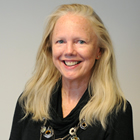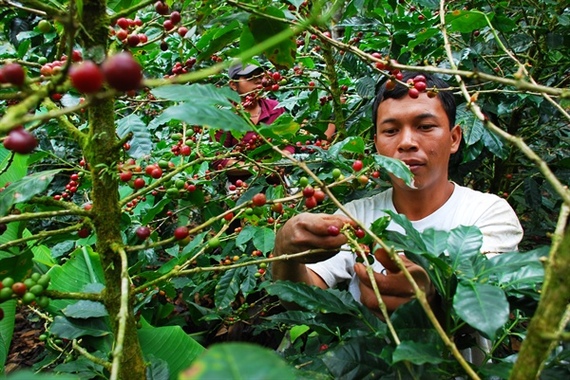By Brigit Helms and Alejandro Escobar

Brigit Helms, the general manager of the Multilateral Investment Fund, also has served as the director of SPEED, a USAID-funded program in Mozambique, and a senior expert for financial inclusion at McKinsey & Company. She has a PhD in agriculture and development economics from Stanford University.
It would be difficult to imagine a bigger sea change in thinking and practice about the private sector's role in international economic development than what we've witnessed these past 12 months: from the financing-for-development conference in April that talked about moving from billions to trillions of dollars by crowding in private-sector financial resources, to the Sustainable Development Goals (SDGs) adopted in September, to the United Nations-led climate change negotiations (COP21) in Paris that concluded in December, and finally to conversations about the technology-driven 4th Industrial Revolution at the World Economic Forum in Davos in January.
There is a broad consensus among governments, the private sector, and civil society that business must take the lead if development problems are to be solved.
Profit with purpose, and inclusive, sustainable growth are increasingly considered "must haves," not "nice to haves."
But how can we do it?
I think it's safe to say that it's no longer business as usual, neither for the development community, nor for the private sector. We need disruption and innovation, completely new ways of working. Partnerships and collaboration--often among uneasy bedfellows--are critical for success. No one can do this alone.
Agriculture at the forefront
Nowhere is it more urgent, nowhere is there more potential for putting this new paradigm into practice, than in agriculture. Global food production needs to increase by 60% by 2050 to keep up with demand, but working with only about 12% more land. Latin America and the Caribbean can and must lead the charge, as our region has the best prospects for producing the surpluses necessary to feed the world.
It's great to see that businesses are increasingly taking on the challenge, reaching into their supply chains to deliver social, economic, and environmental impact. A select few are setting new standards, for example, in the expansion of much-needed financial services to the agricultural sector. In Nicaragua, for instance, Exportadora Atlantic (the local subsidiary of the coffee trader Ecom), in conjunction with coffee roaster and retailer Starbucks Corporation, the Inter-American Development Bank (IDB) Group, and the International Finance Corporation (IFC , a member of the World Bank Group), is providing long-term financing for about 1,000 coffee farmers to help them combat the devastating effects of the coffee rust fungus. Coffee is Central America's leading export, and in some countries of the region, the fungus has affected up to 70 percent of plantations.
In the separate area of results measurement, advances in technology have radically improved our ability to capture these metrics and to use company-level data for the dual purposes of decision making about supply chains, and monitoring and evaluation of the results of development projects.
Organizations like Sustainable Food Lab have taken upon themselves the challenge of accelerating market-driven progress toward a sustainable mainstream food system, by bringing together for-profit food companies, nonprofit organizations, and regional food and agricultural research actors, to share experiences and facilitate cross-sector collaboration. The Food Lab facilitates a community of practice that is developing a consensus on a common approach to measuring the performance of smallholder farmers. Key members of this community range from food companies Nestlé and Mars chocolate, to nonprofits Rainforest Alliance and Ford Foundation.
Sustainable Agriculture, Food, and the Environment initiative
This kind of disruption and transformation is the reason we have established the SAFE (Sustainable Agriculture, Food, and the Environment) platform, a new partnership between some global food companies and various donors and nongovernmental organizations, which aims to coordinate the work of the various players in agriculture sustainability efforts in Latin America and the Caribbean. The new alliance was initiated by the IDB Group's Multilateral Investment Fund in August 2015 and will be managed and supervised by the Humanist Institute for Cooperation (Hivos), a Netherlands-based international organization. The partnership will initially work in the coffee and cocoa industries, where much has been done in terms of good practice in sustainability standards, and will later expand to include other crops.
This collaboration offers a catalytic blend of technical and financial instruments to support smallholder farmers. We will test and help scale innovative models to support smallholders to be more productive, earn more money, and apply climate-smart approaches.
Alejandro Escobar
Alejandro Escobar has worked 20 years in agricultural development. At the Multilateral Investment Fund, he is responsible for projects in sustainable agriculture, financing of farmer cooperatives, and development of investment vehicles for agricultural finance and of value chains of small farmers.
From the Multilateral Investment Fund Trends blog
